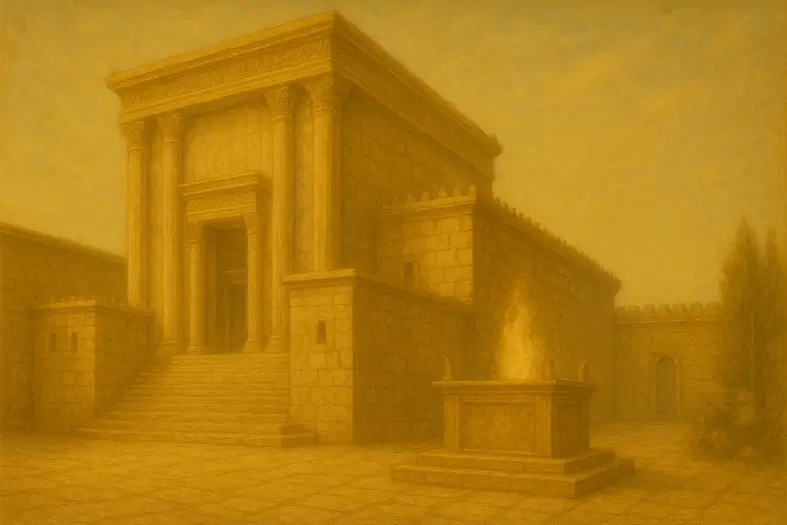


Sacrifices that have become impure must be burned and not used for consumption.
This mitzvah commands the burning of korbanot that have become tamei (ritually impure). Rather than consuming or discarding casually, they must be destroyed through fire, preserving the sanctity of Hashem’s service. Rambam (Hilchot Pesulei HaMukdashin 19:1) codifies this mitzvah as an affirmative duty, parallel to the prohibition against eating tamei korbanot.
Sefer HaChinuch (Mitzvah 462) teaches that burning impure sacrifices prevents disgrace of holy offerings, ensuring that even when holiness is compromised, its conclusion remains dignified. The Talmud (Pesachim 24a; Zevachim 34b) establishes that both notar and tamei meat must be burned, yet distinguishes between impurity from within and impurity from external contact. Rashi (Lev. 7:19) notes that burning emphasizes sanctity’s exclusivity: once corrupted, holy meat cannot return to use. Ramban explains that burning tamei sacrifices sanctifies Hashem’s Name by showing His laws govern even failure and loss.
Commentary & Classical Explanation:
Contrast with Burning Notar (Mitzvah 398):
Parallel to Sending Impure People from the Mikdash (Mitzvah 326):


Concerns the Beit HaMikdash, korbanot (offerings), and priestly service.
Represents the concept of spiritual intentionality, purity, and sanctity—set apart for a higher purpose.
Signifies awe and reverence toward Hashem—living with awareness of His greatness and presence.
Represents Emunah—the deep, inner trust in Hashem’s presence, oneness, and constant involvement in our lives. This badge symbolizes a heartfelt connection to G-d, rooted in belief even when we cannot see. It is the emotional and spiritual core of many mitzvot.
Mitzvot that define and deepen the relationship between a person and their Creator. These include commandments involving belief, prayer, Shabbat, festivals, sacrifices, and personal holiness — expressions of devotion rooted in divine connection.

Dive into mitzvos, prayer, and Torah study—each section curated to help you learn, reflect, and live with intention. New insights are added regularly, creating an evolving space for spiritual growth.

Explore the 613 mitzvos and uncover the meaning behind each one. Discover practical ways to integrate them into your daily life with insights, sources, and guided reflection.

Learn the structure, depth, and spiritual intent behind Jewish prayer. Dive into morning blessings, Shema, Amidah, and more—with tools to enrich your daily connection.

Each week’s parsha offers timeless wisdom and modern relevance. Explore summaries, key themes, and mitzvah connections to deepen your understanding of the Torah cycle.